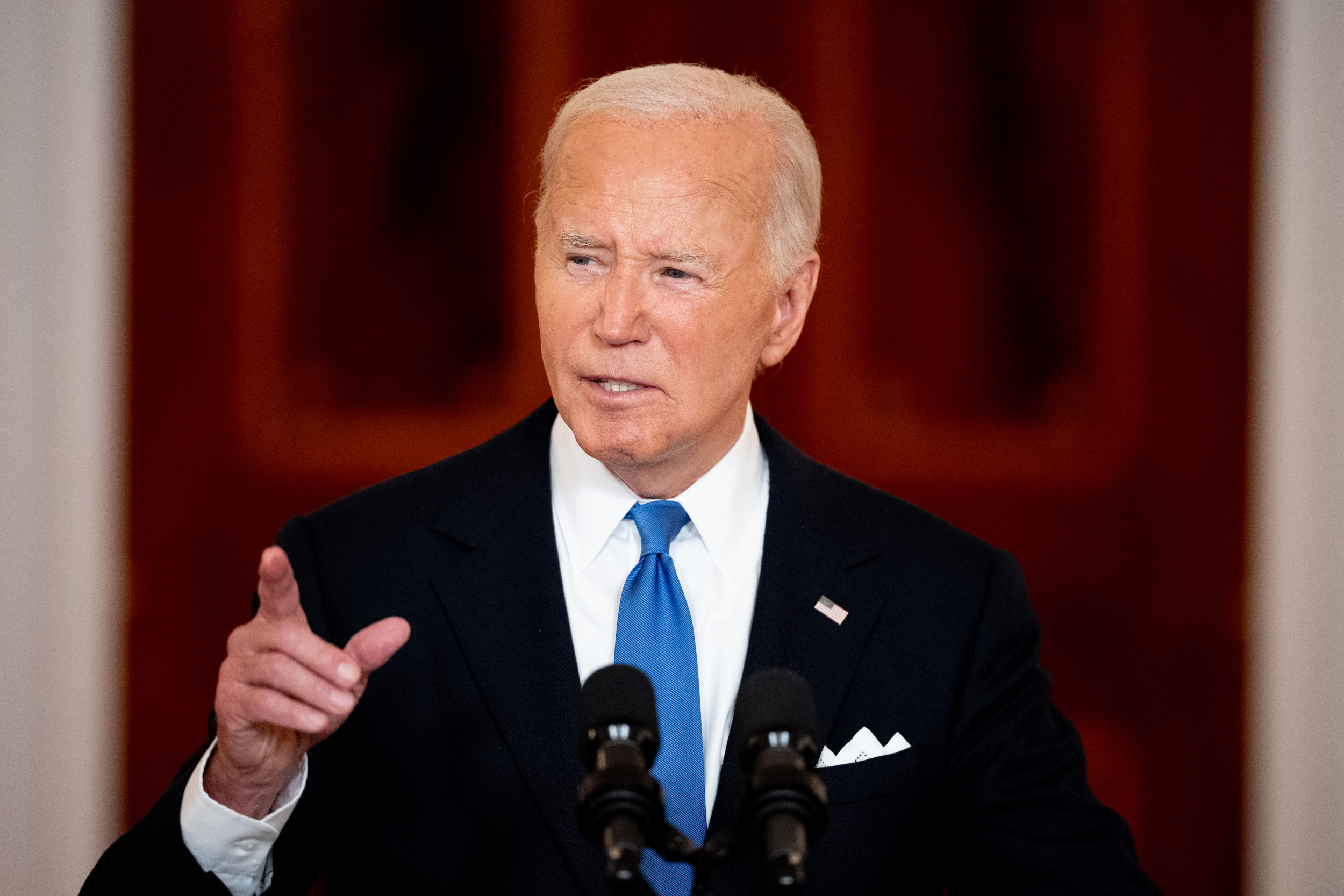President Joe Biden is reportedly preparing to endorse significant changes to the Supreme Court, a move that one prominent legal analyst has likened to a “Black Friday clearance” of presidential principles “signaling everything must go.”
According to a recent Washington Post report, Biden is poised to support major Supreme Court reforms, such as establishing term limits for justices and implementing an enforceable ethics code. The president is also said to be considering whether to back a constitutional amendment that would eliminate broad immunity for presidents and other top officials.
Jonathan Turley, the Shapiro Professor of Public Interest Law at George Washington University and author of the forthcoming book “The Indispensable Right: Free Speech in an Age of Rage,” criticized Biden’s potential move in a new op-ed for The Hill.
Turley writes, “If those numbers were 10 points higher, the Supreme Court might be safe for another 10 years. However, it is now just another price for power.” The legal scholar referenced what he described as Biden’s “dismal polling numbers.”
This apparent shift in Biden’s stance comes amid growing controversy surrounding the Court’s recent rulings and ethical concerns involving some justices. On July 1, the Court ruled in a 6-3 decision that former presidents have immunity for official acts conducted while in office, but not for unofficial acts. This ruling relates to former President Donald Trump‘s argument in the federal election interference case against him.
Newsweek contacted Biden’s spokesperson via email and the Supreme Court’s public information office on Saturday for comment.
The Department of Justice (DOJ) has accused Trump of attempting to overturn Biden’s 2020 election victory, but the former president claims immunity from prosecution because he was in office when the alleged scheme took place. Trump has pleaded not guilty to all charges and maintains that the case is politically motivated.
Adding to the controversy, Justices Clarence Thomas and Samuel Alito have faced criticism over ethical concerns stemming from undisclosed gifts and perceived biases in cases involving Trump and attempts to overturn the 2020 election. Both justices have declined to recuse themselves from these cases, prompting Representative Alexandria Ocasio-Cortez, a New York Democrat, to file articles of impeachment against them earlier this month, although these are unlikely to succeed in the Republican-controlled House.
Turley suggests that Biden’s shift is emblematic of a broader pattern of political expediency: “In decades of public service, Biden has shown an impressive moral and political flexibility. He has shifted on almost every major issue as polls made his earlier positions unpopular, or when trying to appeal to a larger Democratic constituency.”
Throughout his 2020 campaign and much of his presidency, Biden had carefully sidestepped the issue of court reform, refusing to endorse proposals such as court packing that have gained traction among progressive Democrats. His reticence on the matter was seen as an attempt to appease both moderates and the party’s left wing.
The specific reforms Biden is reportedly considering – term limits and an ethics code – address longstanding concerns about the Court’s structure and accountability. Term limits could potentially reduce the politicization of appointments, while an enforceable ethics code would address recent controversies surrounding some justices’ conduct, proponents say.
Biden’s potential embrace of court limitations represents a stark contrast to his long-held views on the institution. As a senator, he consistently defended the court’s structure and independence, often pushing back against calls for reform from within his own party.
The timing of Biden’s apparent shift has not gone unnoticed. With the Democratic National Convention (DNC) on the horizon in August and whispers of potential challengers growing louder, some political observers view this move as an attempt to shore up support among the party’s progressive base.
As the 2024 election cycle heats up, Biden’s stance on Supreme Court reform is likely to become a focal point of both intra-party debates and general election messaging. Republicans have already seized on the issue, framing it as an attack on judicial independence and a desperate attempt to salvage a flailing presidency.
The coming months will reveal whether Biden’s reported openness to court limitations translates into concrete policy proposals. Either way, it has reignited a contentious debate about the role and structure of the nation’s highest court, a debate that is sure to shape the political landscape in the run-up to November.
Turley concludes his op-ed with a pointed question that encapsulates the criticism of Biden’s apparent shift: “When the haggling is over, what will be left of your legacy beyond your final asking price?”
Uncommon Knowledge
Newsweek is committed to challenging conventional wisdom and finding connections in the search for common ground.
Newsweek is committed to challenging conventional wisdom and finding connections in the search for common ground.
